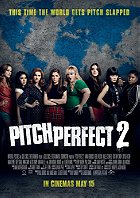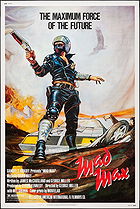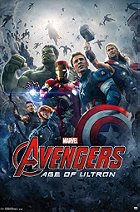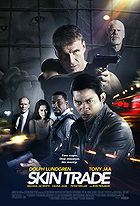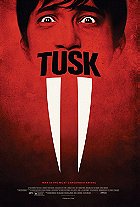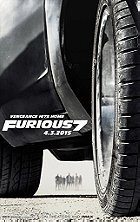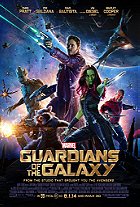Released four years after the superlative Mad Max 2, 1985's Mad Max: Beyond Thunderdome should have been a home run which closed the Mel Gibson-starring Mad Max trilogy on a high. But alas, it simply was not to be. Although Mad Max 2 received a sizable budget boost, Beyond Thunderdome is the first entry in the series with Hollywood backing, making it a studio effort rather than the vision of an auteur like the previous features. Evidence of studio involvement is present from the outset, lingering throughout the movie and oftentimes slapping you in the face. Beyond Thunderdome loses sight of why the original films worked, swapping out R-rated ultra-violence for a freaking PG-13 rating, and adding too much gloss. PG-13 alone is an automatic fail, but the awfulness of this stinker goes much further than that.

Fifteen years after the events of the previous movie, Max Rockatansky (Gibson) is stripped of all his belongings, left to wander the desolate Australian wasteland on foot. By chance, Max happens upon a crude village dubbed "Bartertown," a place that's overseen by matriarch leader Aunty Entity (Tina Turner). As Max arrives, Entity is locked in a political dispute with Master Blaster; a being comprised of small engineer Master (Angelo Rossitto) and hulking behemoth Blaster (Paul Larsson) who refine methane gas from pig faeces. Aunty Entity offers Max a deal: she will provide him with a full compliment of supplies if he enters the Thunderdome and engages in a fight to the death with Blaster. Max breaks the deal, however, and as a consequence is cast out into the desert. On the verge of death, Max is saved by a group of kids who perceive him as their saviour who has featured in stories and hearsay for generations.
In essence, Mad Max Beyond Thunderdome is an attempt at reimagining the story of Peter Pan in a post-apocalyptic setting, adding a dash of Lord of the Flies for good measure. Although it may seem like an interesting idea in theory, execution is slipshod. There are two stories jammed into this one picture, but they are so awkwardly merged that the sudden change in narrative focus may cause whiplash. Beyond Thunderdome should have been all about Bartertown, with Max determined to overthrow Aunty Entity without enlisting the help a bunch of whiny infants. The movie's initial gladiatorial and political underpinnings show promise, as such ideas provide a new area for this post-apocalyptic series to explore, but the movie does fuck all with them.

Chief among the sins of Beyond Thunderdome is that it betrays its predecessors, both of which were hardcore "Ozploitation" flicks that were screened at seedy grindhouse cinemas. This third film, on the other hand, is a PG-13 sell-out of a once-brilliant franchise, retaining the proclivity for colourful production design but toning down the violence and adding a bunch of children, taking the edge off the material. Beyond Thunderdome starts out well enough, but the kids are a deal-breaker, with the Lord of the Flies stuff feeling totally out of place in a Mad Max film. It's humiliating to see the rugged titular antihero as a nanny. If there really had to be children in this tale, they should have all been mute and feral, reminiscent of the Feral Kid from Mad Max 2. Furthermore, the movie features a handful of Tina Turner songs, the most obvious instance of studio tampering. Turner is not a bad singer, but her musical stylings in no way fit the post-apocalyptic landscape of this universe. It doesn't work. Beyond Thunderdome is Mad Max in name only, an outrage on the same pitiful level as RoboCop 3 and Die Hard 4.0.
It would not be fair to blame Miller for the awfulness of Beyond Thunderdome. Following the death of his long-time collaborator Byron Kennedy, Miller began to lose interest in the project, and although he had a hand in the screenplay, he only directed the action sequences. Indeed, the blame for Beyond Thunderdome belongs elsewhere. In all likelihood, co-director George Ogilvie (who went on to direct... absolutely nothing) is the one who fucked it up, though this being a studio film probably didn't help matters. Focus is one of the main things that this sequel lacks - it's longer than its predecessors by about ten minutes, yet it feels twice as long. It meanders all over the place, wandering from one incident to the next before trying to tie everything together with a climactic chase that feels like a case of "been there, done that" after Mad Max 2. And it's nowhere near as thrilling or heart-stopping - in fact, it ultimately grows monotonous. Added to this, composer Brian May was replaced with Maurice Jarre, and the resultant score is just not the same. It's not Mad Max. Especially when the kids are introduced, the music becomes too saccharine, and the soundtrack can never reach the pulse-pounding heights of May's superb work on Mad Max 2. It's closer to The Goonies, for fuck's sake.

The one constant which remains top-notch in Beyond Thunderdome is Gibson as the titular Max. He has the character down to a tee, with minimalist dialogue and his rugged demeanour making him an eminently interesting antihero. It's awkward to watch Max softening up whilst in the company of the children, but Gibson does what he can with the material. It's not his fault. Also starring in the movie is Turner herself... Let's just say it's understandable that she has only had a starring role in one other major motion picture since this movie. None of the other thespians are worth talking about, especially not the irritating kids who ruin the film.
To the credit of Miller, Beyond Thunderdome does feature a few entertaining action beats, and there are scenes and ideas which shine from time to time, but on the whole, this third Mad Max instalment is a dismal misfire. Worse, its narrative eventually comes to an abrupt conclusion that will leave you feeling empty and unsatisfied. It would be interesting to see what the movie could've been with Miller being the sole driver of the ship, and without all of the annoying little brats. Even though the movie was surprisingly well-received back in 1985, it has not dated well at all.
4.2/10
 Login
Login
 Home
Home 183 Lists
183 Lists 1673 Reviews
1673 Reviews Collections
Collections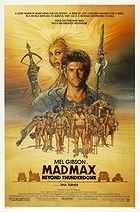
 0 comments,
0 comments, 



